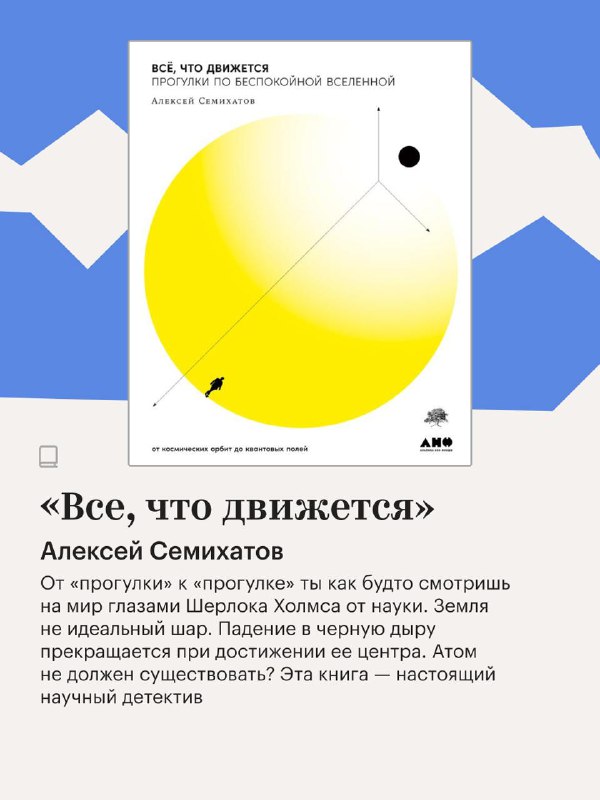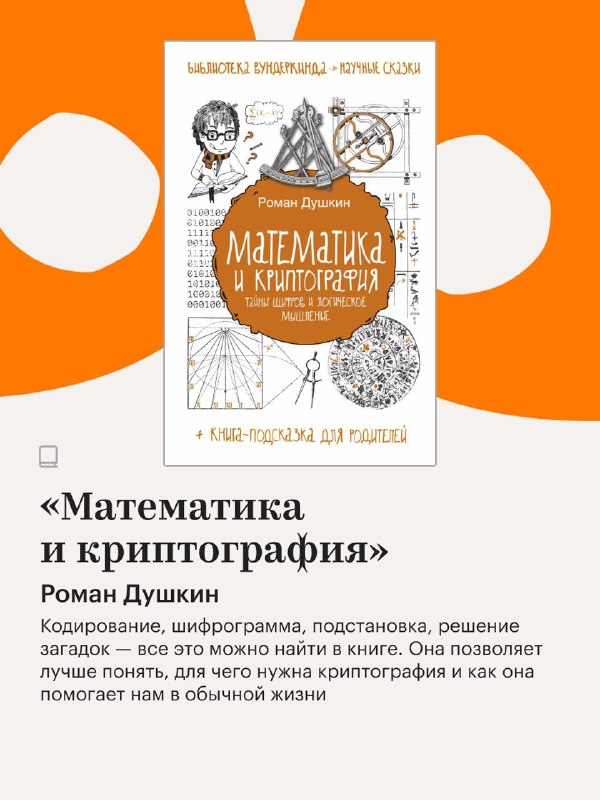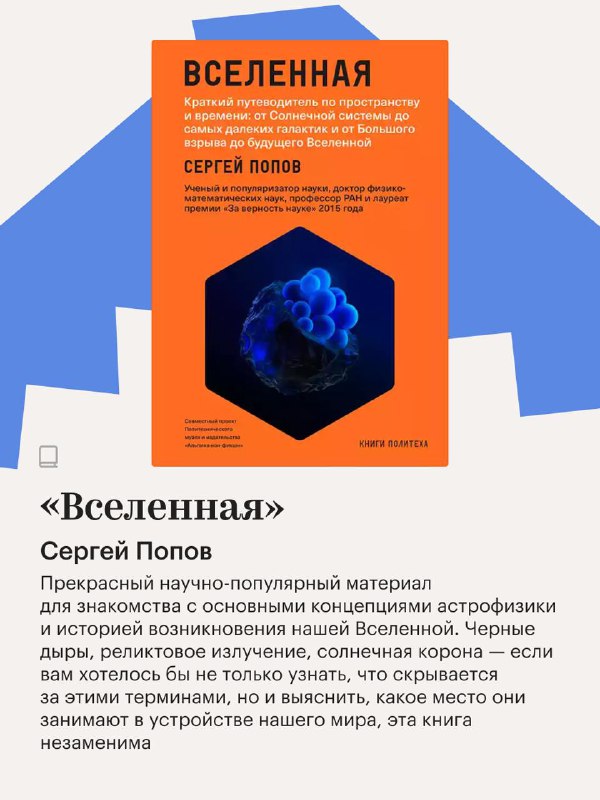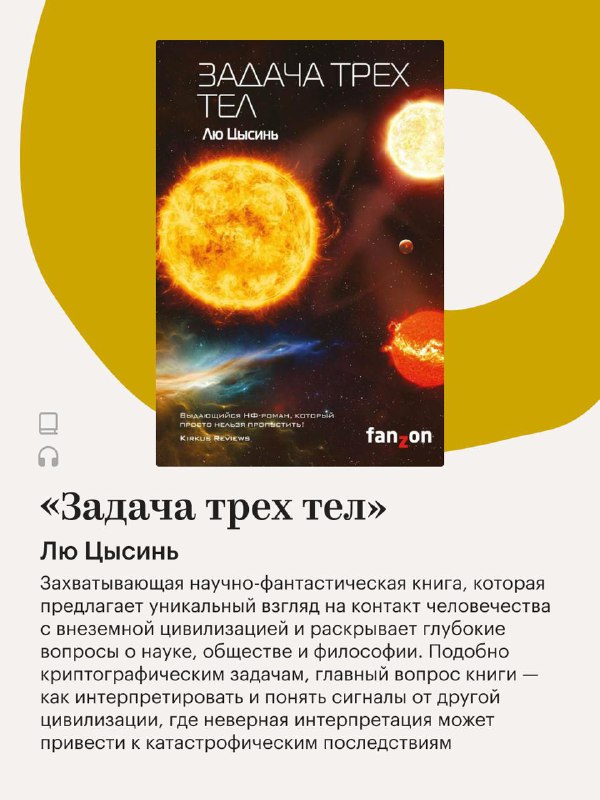Дарим идею для праздников — отправиться в Музей криптографии! Там сейчас как раз проходит выставка о роли космических технологий в нашей повседневности «При чем тут космос».
Специально для Яндекс Книг сотрудники музея собрали книги, которые так или иначе связаны с криптографией и космосом. В карточках — часть, все ищите на полке 🪐
Специально для Яндекс Книг сотрудники музея собрали книги, которые так или иначе связаны с криптографией и космосом. В карточках — часть, все ищите на полке 🪐
group-telegram.com/booksyandex/3963
Create:
Last Update:
Last Update:
Дарим идею для праздников — отправиться в Музей криптографии! Там сейчас как раз проходит выставка о роли космических технологий в нашей повседневности «При чем тут космос».
Специально для Яндекс Книг сотрудники музея собрали книги, которые так или иначе связаны с криптографией и космосом. В карточках — часть, все ищите на полке 🪐
Специально для Яндекс Книг сотрудники музея собрали книги, которые так или иначе связаны с криптографией и космосом. В карточках — часть, все ищите на полке 🪐
BY Яндекс Книги










Share with your friend now:
group-telegram.com/booksyandex/3963
